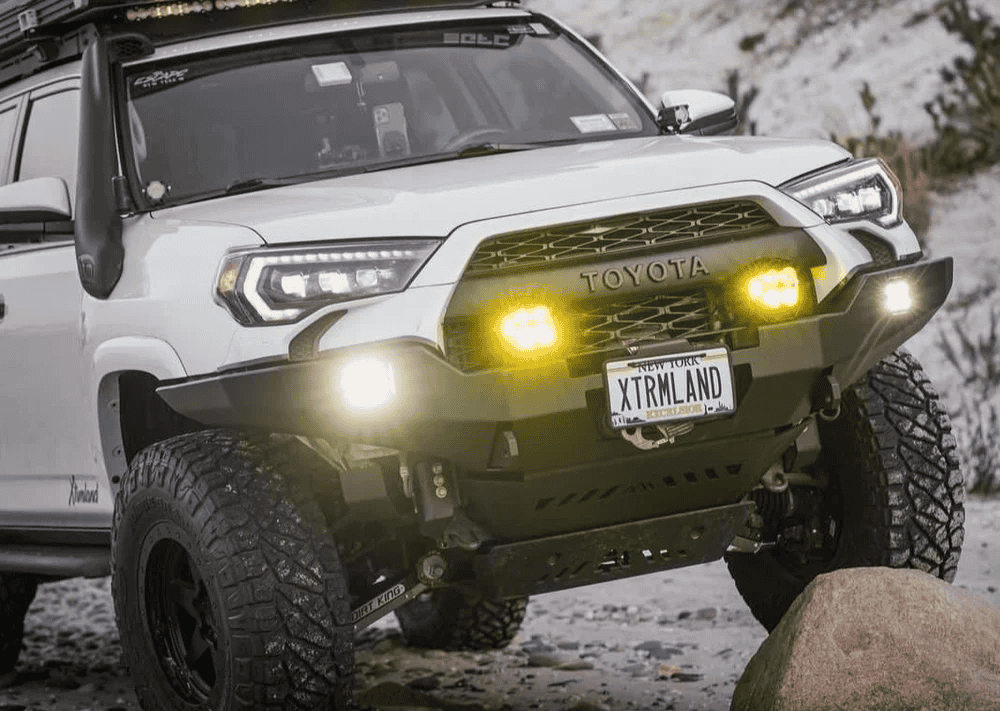Overland Vehicles

Eco conscious build materials lower total environmental impact across sourcing, manufacturing, use, and end of life. In practice, that means reduced embodied carbon, safer chemistry, and long service life. It also means traceability: knowing where fiber, metal, or resin comes from and how it was processed. Independent certifications help validate claims, including FSC for wood, GREENGUARD or UL for low emissions, and Cradle to Cradle for circular design. When comparing options, weigh the full picture rather than just a recycled content number on a spec sheet.
In mobile environments, indoor air quality matters. Choose low or zero VOC adhesives, sealants, and finishes and verify grams per liter, not just “low odor” language. Moisture tolerance also matters because rigs face condensation, freeze thaw cycles, and dust. Materials that can be cleaned, refinished, or repaired extend life and reduce replacement waste. Finally, transport weight has a direct impact on fuel or energy consumption, so prioritize strength to weight without compromising safety.
Insulation sets the tone for comfort and efficiency. Sheep wool regulates moisture and resists compaction while offering a high recycled and renewable profile. Cork and wood fiber panels provide thermal and acoustic control with manageable weights. Recycled denim can work when kept dry and ventilated. Aerogel blankets deliver exceptional R value per inch in targeted areas but can be cost sensitive. Avoid trapping moisture by combining vapor open materials with thoughtful ventilation.
For panels and cabinetry, look for FSC certified plywood that is formaldehyde free or uses soy based adhesives. Bamboo ply offers rapid renewability and high hardness, while birch ply balances weight, strength, and screw holding. Countertops made from paper composite or recycled glass cement blends bring durability and easy maintenance without heavy toxicity. When metal is required, recycled content aluminum and stainless steel with powder coated finishes deliver longevity and cleanable surfaces.
Flooring must balance abrasion resistance, cleanability, and thermal feel. Cork and high quality linoleum made from natural resins and wood flour provide resilient, low VOC surfaces. Rubber flooring with verified low emissions can fit gear zones. For wall and ceiling finishes, waterborne acrylics or plant based oils minimize off gassing; confirm cure times and ventilation for best results. Where adhesives are needed, pick waterborne contact cements or reactive systems with published safety data and follow manufacturer spread rates to avoid excess use.
Rely on third party labels, LCAs, or Environmental Product Declarations rather than vague sustainability claims. Check VOC numbers, recycled content by percentage and post consumer share, and ask for chain of custody on certified wood. A clear spec sheet beats a buzzword every time.
Local or regional sourcing cuts transport emissions and often shortens lead time. Many suppliers offer remnant or off cut programs for sheet goods and counters that reduce waste and cost. Pre finished panels can lower job site emissions and speed installation. Design for disassembly by using mechanical fasteners where possible, giving you access for upgrades and repairs down the road.
Maintenance makes or breaks sustainability. Hardwax oils allow spot repairs without full sanding. Removable floor runners protect high traffic areas. Ventilation and thermal breaks keep condensation in check, preserving insulation and woodwork. At end of life, materials that are mono component or clearly labeled are easier to reclaim or recycle, while composites without documentation often become landfill bound.
Upfront prices can be higher, but operating savings and longer service intervals pay back over time. Lighter builds ease drivetrain load, efficient insulation reduces battery draw, and durable finishes avoid costly tear outs. The right spec narrows the gap between initial cost and total lifetime value.
OZK Customs integrates these principles into real world builds that still feel warm, quiet, and tough enough for backroads. Our team specifies low emission finishes, FSC wood options, recycled content metals, and moisture smart insulation to meet your goals without adding unnecessary weight. If you want to see how this comes together in purpose built rigs, explore our Overland rigs and consider a tailored Custom overland upfit that matches your travel style.
When selecting a partner, experience matters as much as materials. Learn how we approach planning, fabrication, testing, and handoff on Why choose OZK Customs. From layout to finish schedule, we align performance, aesthetics, and sustainability so your rig feels good to breathe in and stands up to real mileage.
Ready to build smarter with eco conscious materials? Share your priorities for air quality, weight, and durability, and we will propose a clean material palette, finish schedule, and service plan that deliver comfort on the trail and confidence over time.
Ready to spec a cleaner, lighter, longer lasting build? Tell us how you travel and we will engineer a materials package that balances sustainability with real world performance. Submit the form and our team will propose an eco minded plan, timeline, and budget tailored to your rig.
ADDRESS:
6159 E Huntsville Rd, Fayetteville, AR 72701
PHONE:
(479) 326-9200
EMAIL:
info@ozkvans.com